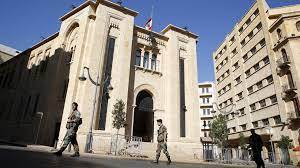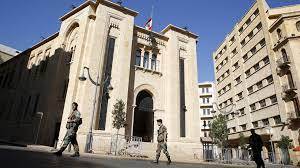The electronic newspaper "The News" writes: The confusion reflected in both the living and economic conditions keeps the Lebanese in constant anxiety, trapped by the successive crises that besiege them and disturb their lives, amid the evident indifference or helplessness of officials and their inability to find effective solutions. With the closure announced by banks today and tomorrow, amid the ongoing conflict between them and Judge Ghada Aoun, the fuel crisis re-emerges. Despite the Ministry of Energy announcing that Minister Walid Fayyad's communications led to companies delivering goods and reopening stations, scenes of queues began since yesterday, Sunday, and continue. Judicial and legal circles are waiting to see if the Governor of the Central Bank, Riad Salameh, will appear before Judge Aoun or if he will miss the appointment as he has done in previous instances, especially after Aoun arrested Rami Salameh, the brother of the central governor, following his interrogation last week, indicating that the crisis will escalate in the coming days.
Financial and economic expert Antoine Farah pointed out in an interview with "The News" electronic edition that the banking sector is "the vital artery in the country, and when this sector stops working, it means complete paralysis of all financial activities, including settlements, salary withdrawals, transaction processing, and opening credits, as all financial movements in the country depend on the banking sector, especially since there has been significant activity in the banking sector related to the salaries of both the public and private sectors recently. Consequently, stopping banking operations causes complete financial paralysis."
However, according to Farah, "the more dangerous and important issue" is not just about financial paralysis but rather "the reputation that could worsen further after the banking sector strike." Farah noted that the reasons leading to the strike "are those that damage the reputation more when those outside hear that the banking sector is complaining of politicized judiciary and judicial chaos, and so on regarding the external perception of the country," indicating that "the reputation of the entire financial sector will become very low, making the relationship of cooperating banks with Lebanese banks more difficult, and thus the responsibility in this area falls on the state."
Farah pointed out that "the state is the one that caused this great collapse and left depositors and banks without money because it deposited its funds in the central bank, which can no longer return them, and the central bank is also without funds because the state imposed on it either to borrow without interest or to stabilize the exchange rate of the lira without losses, which incurred additional losses." He added: "In this bleak scene, the state appears as if it is not concerned, even the last government session was less than what was required," considering that "an emergency is needed to address the crisis, which is not judicial, banking, or even financial, but rather a purely political crisis that the state must take responsibility for and address."
Regarding fuel, representative of the fuel distributors union, Fadi Abou Chakra, explained in an interview with "The News" electronic edition that "the oil importing companies will deliver the goods to us as usual, and we, in turn, will deliver to the stations that we can. However, the problem is that some companies have not completed their transactions with banks, and we all know there is a strike in the banks. Therefore, some obstacles might occur from some companies, but there are no stations cut off from fuel, and goods will be secured," pointing to an agreement with the Minister of Energy to deliver to the stations that do not have goods in order to alleviate pressure on markets until the banking issue is resolved.
In terms of the fuel sector's strike on Tuesday, Abou Chakra revealed that it is due to a letter from the General Directorate of Oil demanding the cessation of 1,400 tankers from work and requesting their owners to replace them with new ones. This request cannot be implemented in these difficult circumstances because the price of the tanker is 200,000 USD, and no one can secure this demand, which will lead to putting 1,400 families on the streets.
In light of this, the outlook seems grim, especially as whispers are leaking from some closed rooms about the insistence of the Free Patriotic Movement to cancel the elections, after it failed to utilize the deadlines card, then the expatriates card, followed by the mega center card, and then the funding card. Now it is working through its arms in power to create repeated issues with the banks, which in turn do not spare any effort to put the Lebanese in a dangerous predicament, which signifies a new threat to the electoral entitlement, an issue that should be heeded in the coming days to ensure the elections are held on time and to maintain proper democratic political operations, whatever the outcomes may be that those confident in their path, journey, struggle, and connection to the people should not fear, as expressed clearly by the head of the Democratic Gathering, MP Taymour Jumblatt, the day before yesterday before the crowds in Mukhtara.




